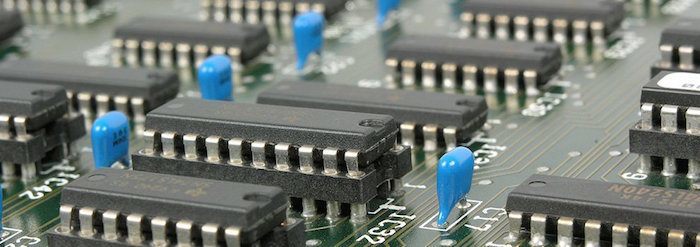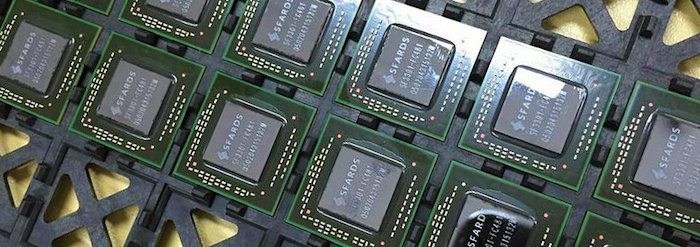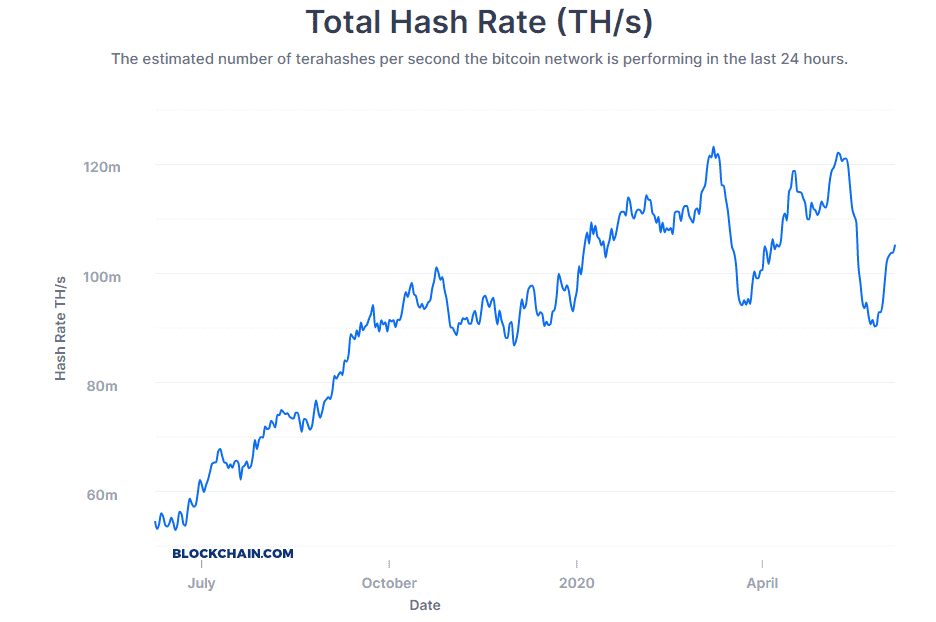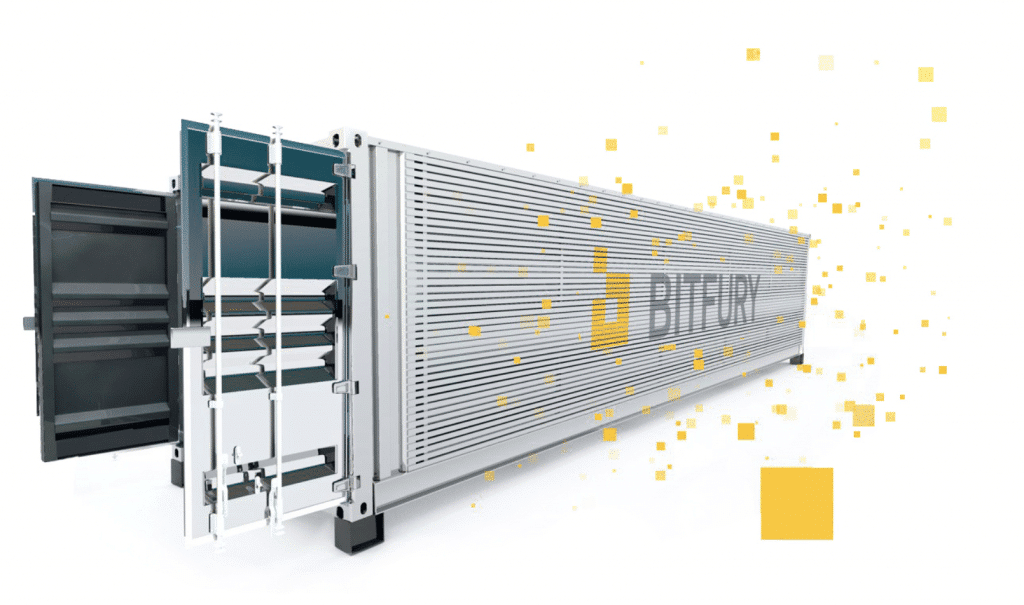- Bitcoin Mining Hardware Guide
- The best Bitcoin mining hardware has evolved dramatically since 2009
- Today’s modern and best bitcoin mining hardware
- Bitcoin Mining Hardware Comparison
- AntMiner S7
- AntMiner S9
- Avalon6
- Best Bitcoin Mining Hardware
- ASIC Bitcoin Mining Hardware
- AntMiner U2
- BPMC Red Fury USB
- GekkoScience
- Best Bitcoin Cloud Mining Services
- Full List of Mining Hardware
- Bitcoin Mining Hardware Reviews & Comparison
- Bitcoin Mining Hardware Summary
- 1. Bitcoin Mining Evolution
- 2. Evaluating a Miner
- Power Consumption
- Hashrate
- Energy Efficiency
- 3. Notable Mining Hardware Companies
- Bitmain Technologies
- MicroBT
- Canaan Creative
- Innosilicon Technology
- GMO Internet
- Zhejiang Ebang Communication
- Bitfury
- 4. Best Bitcoin Miners for 2021
Bitcoin Mining Hardware Guide
The best Bitcoin mining hardware has evolved dramatically since 2009
At first, miners used their central processing unit (CPU) to mine, but soon this wasn’t fast enough and it bogged down the system resources of the host computer. Miners quickly moved on to using the graphical processing unit (GPU) in computer graphics cards because they were able to hash data 50 to 100 times faster and consumed much less power per unit of work.
During the winter of 2011, a new industry sprang up with custom equipment that pushed the performance standards even higher. The first wave of these specialty bitcoin mining devices were easy to use Bitcoin miners were based on field-programmable gate array (FPGA) processors and attached to computers using a convenient USB connection.
FPGA miners used much less power than CPU’s or GPU’s and made concentrated mining farms possible for the first time.
Today’s modern and best bitcoin mining hardware
Application-specific integrated circuit (ASIC) miners have taken over completely. These ASIC machines mine at unprecedented speeds while consuming much less power than FPGA or GPU mining rigs. Several reputable companies have established themselves with excellent products.
Bitcoin Mining Hardware Comparison
Currently, based on (1) price per hash and (2) electrical efficiency the best Bitcoin miner options are:
AntMiner S7
AntMiner S9
Avalon6
Best Bitcoin Mining Hardware
Two major factors go into determining the best bitcoin mining hardware: (1) cost and (2) electricity efficiency.
Bitcoin mining is difficult to do profitably but if you try then this Bitcoin miner is probably a good shot.
ASIC Bitcoin Mining Hardware
Application-specific integrated circuit chips (ASICs) are bitcoin mining hardware created solely to solve Bitcoin blocks. They have only minimal requirements for other normal computer applications. Consequently, ASIC Bitcoin mining systems can solve Bitcoin blocks much quicker and use less less electricity or power than older bitcoin mining hardware like CPUs, GPUs or FPGAs.
As Bitcoin mining increases in popularity and the Bitcoin price rises so does the value of ASIC Bitcoin mining hardware. As more Bitcoin mining hardware is deployed to secure the Bitcoin network the Bitcoin difficulty rises. This makes it impossible to profitably compete without a Bitcoin ASIC system. Furthermore, Bitcoin ASIC technology keeps getting faster, more efficient and more productive so it keeps pushing the limits of what makes the best Bitcoin mining hardware.
Some models of Bitcoin miners include Antminer S5, Antminer U3, ASICMiner BE Tube, ASICMiner BE Prisma, Avalon 2, Avalon 3, BTC Garden AM-V1 616 GH/s, VMC PLATINUM 6 MODULE, and USB miners.
AntMiner U2
BPMC Red Fury USB
GekkoScience
Best Bitcoin Cloud Mining Services
For those not interested in operating the actual hardware then they can purchase Bitcoin cloud mining contracts. Being listed in this section is NOT an endorsement of these services. There have been a tremendous amount of Bitcoin cloud mining scams.
Hashflare Review: Hashflare offers SHA-256 mining contracts and more profitable SHA-256 coins can be mined while automatic payouts are still in BTC. Customers must purchase at least 10 GH/s.
Genesis Mining Review: Genesis Mining is the largest Bitcoin and scrypt cloud mining provider. Genesis Mining offers three Bitcoin cloud mining plans that are reasonably priced. Zcash mining contracts are also available.
Hashing 24 Review: Hashing24 has been involved with Bitcoin mining since 2012. They have facilities in Iceland and Georgia. They use modern ASIC chips from BitFury deliver the maximum performance and efficiency possible.
Minex Review: Minex is an innovative aggregator of blockchain projects presented in an economic simulation game format. Users purchase Cloudpacks which can then be used to build an index from pre-picked sets of cloud mining farms, lotteries, casinos, real-world markets and much more.
Minergate Review: Offers both pool and merged mining and cloud mining services for Bitcoin.
Hashnest Review: Hashnest is operated by Bitmain, the producer of the Antminer line of Bitcoin miners. HashNest currently has over 600 Antminer S7s for rent. You can view the most up-to-date pricing and availability on Hashnest’s website. At the time of writing one Antminer S7’s hash rate can be rented for $1,200.
Bitcoin Cloud Mining Review: Currently all Bitcoin Cloud Mining contracts are sold out.
NiceHash Review: NiceHash is unique in that it uses an orderbook to match mining contract buyers and sellers. Check its website for up-to-date prices.
Eobot Review: Start cloud mining Bitcoin with as little as $10. Eobot claims customers can break even in 14 months.
MineOnCloud Review: MineOnCloud currently has about 35 TH/s of mining equipment for rent in the cloud. Some miners available for rent include AntMiner S4s and S5s.
Full List of Mining Hardware
| Miner | Capacity | Efficiency | Price |
|---|---|---|---|
| AntMiner S1 | 180 Gh/s | 2.0 W/Gh | N/A |
| AntMiner S2 | 1000 Gh/s | 1.1 W/Gh | N/A |
| AntMiner S3 | 441 Gh/s | 0.77 W/Gh | N/A |
| AntMiner S4 | 2000 Gh/s | 0.7 W/Gh | N/A |
| AntMiner S5 | 1155 Gh/s | 0.51 W/Gh | N/A |
| AntMiner S5+ | 7722 Gh/s | 0.44 W/Gh | N/A |
| AntMiner S7 | 4.73 Th/s | 0.25 W/Gh | N/A |
| AntMiner S9 | 13.5 Th/s | 0.098 W/Gh | N/A |
| AntMiner U1 | 2 Gh/s | 1.25 W/Gh | N/A |
| AntMiner U2 | 2 Gh/s | 1.0 W/Gh | N/A |
| AntMiner U3 | 63 Gh/s | 1.0 W/Gh | N/A |
| ASICMiner BE Blade | 11 Gh/s | 7.72 W/Gh | N/A |
| ASICMiner BE Cube | 30 Gh/s | 6.67 W/Gh | N/A |
| ASICMiner BE Sapphire | 0 Gh/s | 7.59 W/Gh | N/A |
| ASICMiner BE Tube | 800 Gh/s | 1.13 W/Gh | N/A |
| ASICMiner BE Prisma | 1400 Gh/s | 0.79 W/Gh | N/A |
| Avalon Batch 1 | 66 Gh/s | 9.35 W/Gh | N/A |
| Avalon Batch 2 | 82 Gh/s | 8.54 W/Gh | N/A |
| Avalon Batch 3 | 82 Gh/s | 8.54 W/Gh | N/A |
| Avalon2 | 300 Gh/s | N/A | N/A |
| Avalon3 | 800 Gh/s | N/A | N/A |
| Avalon6 | 3.5 Th/s | 0.29 W/Gh | N/A |
| bi*fury | 5 Gh/s | 0.85 W/Gh | N/A |
| BFL SC 5Gh/s | 5 Gh/s | 6.0 W/Gh | N/A |
| BFL SC 10 Gh/s | 10 Gh/s | N/A | N/A |
| BFL SC 25 Gh/s | 25 Gh/s | 6.0 W/Gh | N/A |
| BFL Little Single | 30 Gh/s | N/A | N/A |
| BFL SC 50 Gh/s | 50 Gh/s | 6.0 W/Gh | N/A |
| BFL Single ‘SC’ | 60 Gh/s | 4.0 W/Gh | N/A |
| BFL 230 GH/s Rack Mount | 230 Gh/s | N/A | N/A |
| BFL 500 GH/s Mini Rig SC | 500 Gh/s | 5.4 W/Gh | N/A |
| BFL Monarch 700GH/s | 700 Gh/s | 0.7 W/Gh | N/A |
| BitFury S.B. | N/A | N/A | N/A |
| Bitmine.ch Avalon Clone 85GH | 85 Gh/s | 7.65 W/Gh | N/A |
| Black Arrow Prospero X-1 | 100 Gh/s | 1.0 W/Gh | N/A |
| Black Arrow Prospero X-3 | 2000 Gh/s | 1.0 W/Gh | N/A |
| Blue Fury | 3 Gh/s | 1.0 W/Gh | N/A |
| BTC Garden AM-V1 310 GH/s | 310 Gh/s | 1.05 W/Gh | N/A |
| BTC Garden AM-V1 616 GH/s | 616 Gh/s | 1.05 W/Gh | N/A |
| CoinTerra TerraMiner IV | 1600 Gh/s | 1.31 W/Gh | N/A |
| Drillbit | N/A | N/A | N/A |
| HashBuster Micro | 20 Gh/s | 1.15 W/Gh | N/A |
| HashBuster Nano | N/A | N/A | N/A |
| HashCoins Apollo v3 | 1100 Gh/s | 0.91 W/Gh | N/A |
| HashCoins Zeus v3 | 4500 Gh/s | 0.67 W/Gh | N/A |
| HashFast Baby Jet | 400 Gh/s | 1.1 W/Gh | N/A |
| HashFast Sierra | 1200 Gh/s | 1.1 W/Gh | N/A |
| HashFast Sierra Evo 3 | 2000 Gh/s | 1.1 W/Gh | N/A |
| Klondike | 5 Gh/s | 6.15 W/Gh | N/A |
| KnCMiner Mercury | 100 Gh/s | 2.5 W/Gh | N/A |
| KnC Saturn | 250 Gh/s | 1.2 W/Gh | N/A |
| KnC Jupiter | 500 Gh/s | 1.2 W/Gh | N/A |
| KnC Neptune | 3000 Gh/s | 0.7 W/Gh | N/A |
| LittleFury | N/A | N/A | N/A |
| Metabank | 120 Gh/s | 1.42 W/Gh | N/A |
| NanoFury / IceFury | 2 Gh/s | 1.25 W/Gh | N/A |
| NanoFury NF2 | 4 Gh/s | 1.35 W/Gh | N/A |
| BPMC Red Fury USB | 2.5 Gh/s | 0.96 W/Gh | N/A |
| ROCKMINER R3-BOX | 450 Gh/s | 1.0 W/Gh | N/A |
| ROCKMINER R4-BOX | 470 Gh/s | 1.0 W/Gh | N/A |
| ROCKMINER Rocket BOX | 450 Gh/s | 1.07 W/Gh | N/A |
| ROCKMINER R-BOX | 32 Gh/s | 1.41 W/Gh | N/A |
| ROCKMINER R-BOX 110G | 110 Gh/s | 1.09 W/Gh | N/A |
| ROCKMINER T1 800G | 800 Gh/s | 1.25 W/Gh | N/A |
| Spondooliestech SP10 Dawson | 1400 Gh/s | 0.89 W/Gh | N/A |
| SP20 Jackson | 1.3-1.7 Th/s | 0.65 W/Gh | N/A |
| Spondooliestech SP30 Yukon | 4500 Gh/s | 0.67 W/Gh | N/A |
| Spondooliestech SP31 Yukon | 4900 Gh/s | 0.61 W/Gh | N/A |
| Spondooliestech SP35 Yukon | 5500 Gh/s | 0.66 W/Gh | N/A |
| TerraHash Klondike 16 | 5 Gh/s | 7.11 W/Gh | N/A |
| TerraHash Klondike 64 | 18 Gh/s | 7.06 W/Gh | N/A |
| TerraHash DX Mini (full) | 90 Gh/s | 7.11 W/Gh | N/A |
| TerraHash DX Large (full) | 180 Gh/s | 7.11 W/Gh | N/A |
| Twinfury | 5 Gh/s | 0.85 W/Gh | N/A |
| Avalon USB Nano3 | 3.6 Gh/s | 0.85 W/Gh | N/A |
| GekkoScience | 9.5 Gh/s | 0.33 W/Gh | N/A |
Bitcoin Mining™® © 2011-2021 Hesiod Services LLC | Terms | Privacy
Источник
Bitcoin Mining Hardware Reviews & Comparison
By: Ofir Beigel | Last updated: 1/27/21
Initially, Bitcoin mining was a simple task even home computers could participate in. Today, mining is done by ultra-powerful computers that are designed for that sole purpose. In this post I’ll cover the best mining hardware available today.
Bitcoin Mining Hardware Summary
Nowadays, the only way to participate in Bitcoin mining is through dedicated miners known as ASIC miners. As mining evolves, more and more companies begin manufacturing dedicated hardware.
The top Bitcoin miners on the market today are:
That’s Bitcoin mining hardware in a nutshell. If you want a deeper understanding of how to choose your miner keep on reading. Here’s what I’ll cover:
1. Bitcoin Mining Evolution
Before I get into the various miners on the market today, I want to make sure you’re familiar with what Bitcoin mining is. If you already know about the purpose of mining and how it integrates with the Bitcoin network, feel free to skip this part.
If not, here’s our Bitcoin mining whiteboard video to get you up to speed:
Mining has moved from being something you can do from the comfort of your own home to a specialized occupation that requires a lot of time and capital.
Miners evolved from using PCs to GPUs (graphics processing unit) and later on to FPGAs (field-programmable gate array) before reaching their current state of ASIC (application-specific integrated circuit) mining.
Today, if you try to mine with anything other than an ASIC miner, you’re in for a disappointment. ASICs are built specifically for Bitcoin mining and are therefore the most efficient type of miner out there.
For reference, a single ASIC miner has the equivalent mining power of 700 GPUs. Therefor, the massive move of miners toward ASIC hardware is easily understandable.
Clear evidence of this is the Bitcoin network total hashrate, which has exceeded the incredible milestone of 120 exahash per second (that’s 120,000,000,000,000,000,000 hash calculations per second!).
Image courtesy of blockchain.com
Today’s focus is on creating smaller chips for ASIC mining in order to produce more powerful miners. The smaller the chip, the more chips you can put inside a miner, increasing its mining capabilities.
The smallest chip introduced commercially to date is a 7 nm (nanometer) chip by Bitmain and their Antminer S17. However, 5 nm chips are expected to be introduced shortly by Bitmain and Canaan.
2. Evaluating a Miner
When you want to evaluate a miner, there are usually three main factors you need to check:
Power Consumption
How much electricity does the miner consume? This is important since you’re going to run a huge electric bill if you mine Bitcoin. This is measured in watts, and the lower the number, the better.
Hashrate
This is how much power the miner has to solve the mining math problem. It basically measures how many guesses the miner can make per second.
While a personal computer can make a few million guesses per second, today’s ASICs can make 1*10^12 guesses per second. The higher you hashrate is, the better.
Energy Efficiency
While having a high hashrate is good, if you’re wasting a lot of energy to get it you’ll be losing money in the end.
Efficiency is basically calculating how much power is required to generate a single bitcoin. An efficient miner requires less electricity to mine Bitcoin.
Efficiency is calculated by dividing energy consumption with hashrate. This way you can effectively measure miners against one another.
All of the above factors are important for calculating profitability, so make sure you have them all before proceeding.
Once you have this information, you can insert it into a Bitcoin mining calculator and estimate how many bitcoins you’ll be able to mine per timeframe.
| Difficulty Factor |
| Hash Rate |
| BTC/USD Exchange Rate |
| BTC/Block Reward |
| Pool Fees % |
| Hardware Cost (USD) |
| Power (Watts) |
| Power Cost (USD/kWh) |




